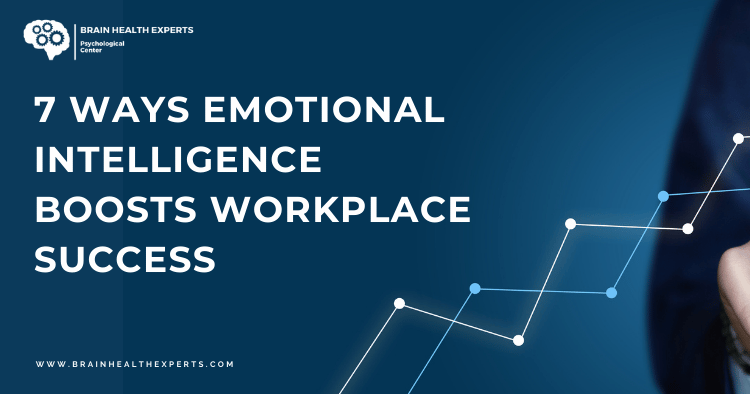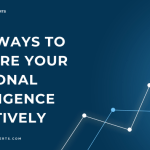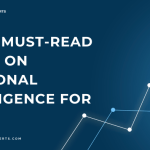Table of Contents
- Introduction
- 1. Enhances Communication Skills
- 2. Fosters Team Collaboration
- 3. Increases Employee Engagement
- 4. Improves Conflict Resolution
- 5. Supports Leadership Development
- 6. Promotes Adaptability
- 7. Boosts Mental Wellbeing
- Conclusion
- FAQs
Introduction
In today’s fast-paced and often stressful work environments, emotional intelligence (EI) has emerged as a critical factor in achieving workplace success. Defined as the ability to recognize, understand, and manage our own emotions while also being sensitive to the emotions of others, emotional intelligence plays a crucial role in fostering a positive workplace culture. This article explores 7 ways emotional intelligence boosts workplace success, helping you cultivate a thriving, productive work environment.
1. Enhances Communication Skills
Effective communication is the backbone of any successful organization. Employees with high emotional intelligence can articulate their thoughts and feelings clearly while also being attentive listeners. This enhances understanding, prevents misunderstandings, and facilitates open dialogue.
“Communication is not just about speaking; it’s about connecting with others on a deeper level.”
Key Points:
- Active Listening: EI helps individuals focus on what others are saying, allowing for more thoughtful responses.
- Non-Verbal Cues: Understanding body language and tone of voice contributes to better interactions.
- Feedback: Emotionally intelligent individuals give and receive feedback constructively.
Visual Aid:
| Communication Aspect | High EI Employees | Low EI Employees |
|---|---|---|
| Clarity | High | Low |
| Empathy | High | Low |
| Conflict Management | High | Low |
2. Fosters Team Collaboration
A team that works well together is often more productive and innovative. Emotional intelligence encourages collaboration by creating an environment where team members feel safe to express their ideas and concerns.
“A collaborative environment isn’t just about teamwork; it’s about building a community that thrives on mutual respect.”
Key Points:
- Trust Building: EI fosters trust, making team members more willing to share and collaborate.
- Diversity Appreciation: Emotionally intelligent teams respect diverse perspectives, leading to more creative solutions.
- Shared Goals: High EI helps teams align on objectives, increasing motivation and commitment.
3. Increases Employee Engagement
Employees who feel understood and valued are more likely to be engaged and motivated. Emotional intelligence contributes to a supportive environment that encourages employees to invest their time and energy into their work.
“Engagement comes from feeling respected and valued; it’s the emotional connection that drives productivity.”
Key Points:
- Recognition: Emotionally intelligent leaders recognize and celebrate employee contributions.
- Support Systems: High EI creates a culture where employees feel comfortable seeking help.
- Work-Life Balance: An emotionally intelligent workplace values employees’ personal lives, leading to higher satisfaction.
4. Improves Conflict Resolution
Conflict is inevitable in any workplace, but how it’s managed makes all the difference. Employees with high emotional intelligence can navigate disagreements more effectively, leading to constructive outcomes.
“Conflict can be a catalyst for growth when managed with emotional intelligence.”
Key Points:
- Emotional Regulation: EI helps individuals manage their emotions during conflicts, reducing escalation.
- Problem-Solving: Emotionally intelligent employees can objectively analyze situations, leading to better solutions.
- Mediation Skills: High EI individuals often serve as mediators, helping others resolve their differences.
5. Supports Leadership Development
Great leaders are often defined by their emotional intelligence. By understanding their own emotions and those of their team, they can inspire and motivate effectively.
“A leader’s emotional intelligence is the compass that guides their team toward success.”
Key Points:
- Vision Communication: Leaders with high EI can communicate their vision compellingly.
- Empowerment: They empower their teams by recognizing individual strengths and fostering growth.
- Adaptability: Emotionally intelligent leaders can adjust their style to meet the needs of their team.
6. Promotes Adaptability
The modern workplace is constantly evolving, requiring employees to adapt to new challenges and changes. Emotional intelligence aids in navigating these transitions with resilience.
“Adaptability is not just about change; it’s about thriving amidst change.”
Key Points:
- Open-Mindedness: High EI individuals are more open to new ideas and changes in direction.
- Stress Management: They manage stress effectively, maintaining productivity during challenging times.
- Learning Orientation: Emotionally intelligent employees view setbacks as opportunities for growth.
7. Boosts Mental Wellbeing
Emotional intelligence contributes to a healthier workplace by promoting mental wellbeing. Employees are more likely to experience lower levels of stress and burnout.
“Mental wellbeing isn’t a luxury; it’s a necessity for a thriving workplace.”
Key Points:
- Self-Care Advocacy: Emotionally intelligent workplaces encourage practices that promote mental health, aligning with insights from 10 Powerful Techniques to Cultivate Positive Mindset.
- Support Networks: High EI fosters supportive relationships that can mitigate stress, as discussed in 10 Effective Stress Management Strategies for Workplace.
- Workplace Culture: An emotionally intelligent culture prioritizes mental wellbeing, leading to higher retention rates, as mentioned in 10 Tips to Overcome Negative Thought Patterns Today.
Conclusion
Emotional intelligence is more than just a buzzword; it is a vital component of workplace success. By enhancing communication, fostering collaboration, increasing engagement, improving conflict resolution, supporting leadership development, promoting adaptability, and boosting mental wellbeing, emotional intelligence creates a thriving work environment. Investing in emotional intelligence training could be the key to unlocking your team’s full potential.
FAQs
1. Why is emotional intelligence important in the workplace?
Emotional intelligence is crucial because it enhances communication, collaboration, and employee engagement, leading to a more productive and harmonious work environment.
“Understanding emotions is the first step to understanding people.”
2. Can emotional intelligence be developed?
Yes! Emotional intelligence can be improved through training, self-reflection, and practice. Many organizations offer workshops and resources to help employees enhance their EI skills, as seen in Top 5 Positive Thinking Workshops Transform Mindset.
3. How can I assess my emotional intelligence?
There are various self-assessment tools available online, such as the EQ-i 2.0 model, which can help you gauge your emotional intelligence and identify areas for improvement.
For more information on emotional intelligence, check out these resources from the Harvard Business Review and the American Psychological Association.
By fostering emotional intelligence in the workplace, organizations can create not just a more productive environment, but also one where employees feel engaged, valued, and happy. For additional insights on mental health and positivity in the workplace, consider exploring our articles on 10 Ways Positive Thinking Boosts Workplace Success.





